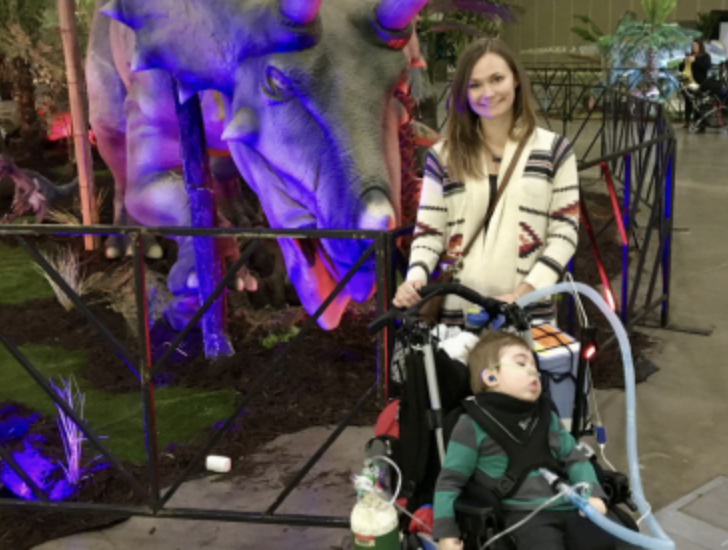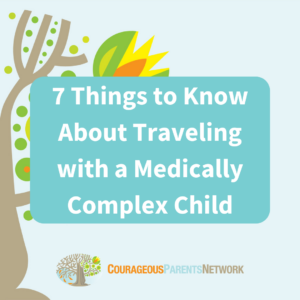Travel
Travel offers new experiences and opportunities to nurture your body and mind. Traveling is a way to step out of your routine and to make memories together. It inspires curiosity and presents opportunities to be brave as individuals and as a family. Traveling with a medically complex child has its challenges and, especially, its rewards.

Your Team:
A specialist whose aim is to improve the quality of life of their patients over the course of their illness regardless of stage, by relieving pain and other symptoms of that illness.
A pediatric health care professional who works with children and families to help them cope with illness, injury and other medical experiences.
The medical team can prepare orders, prescribe medications and help you anticipate medical challenges. Palliative care clinicians and child-life specialists can help you organize, identify and obtain the supplies and equipment, if any, that you will need for your travel.
Planning an excursion of any kind can be exciting—and daunting. Much as you may want to travel with your child, you might have concerns about taking them out of their familiar environment and away from familiar clinicians. Be assured that with preparation it is possible to travel safely and enjoyably. The CPN guide “Travel Guide for Traveling with a Medically Complex Child,” co-published with Brades’ Place, contains helpful tips for all kinds of travel, including staycations. Start with the following advice:
- Explore each traveler’s reasons, hopes and dreams for the trip. You will find that you are better able to plan the travel, and to make decisions that help accomplish what each traveler wishes for.
- Match the style of travel you are planning (for example: adventure, relaxation, sightseeing, visiting family or friends) to the details: Distance, transportation, lodging, dining. Consider what your child and other family members will enjoy (and tolerate): how much time, how much activity, how much opportunity to pursue individual interests and needs.
- If you feel overwhelmed by the prospect of distance travel, consider local or near venues and experiences. A staycation can provide many of the benefits of other travel, perhaps with less stress on you and your family.
- Prepare: Use lists and pack by person or task. Know what insurance
coverage you will have out of area and where medical help is available. If you are traveling by bus, boat, train or plane, contact the company and make whatever arrangements are needed to accommodate your family. If you will need bulky equipment you may wish to ship certain items to your travel destination in advance. - Connect to fellow travelers: Search online for advice from other families about the best places to visit, eat, rest, stay.
- Be as flexible as you are able. Always keep in mind your personal and family goals for this travel. However frustrating some things may be, no matter what surprises arise, you are connecting through this experience to each other—and to a big wide world outside your home and hospital.
– Liz, parent of Colson
Related Resources
-
 You need to make memories to have a whole life with your child.video
You need to make memories to have a whole life with your child.video -
 Travel Guideguide
Travel Guideguide -
 Traveling with a Medically Complex Childevent
Traveling with a Medically Complex Childevent -
 Top 7 Things to Know About Traveling with a Medically-Complex ChildBLOG
Top 7 Things to Know About Traveling with a Medically-Complex ChildBLOG -
 Adventure Awaits: Safe Travel Tips from a Seasoned MomBLOG
Adventure Awaits: Safe Travel Tips from a Seasoned MomBLOG -
 When he asks to do something, you just want to move heaven and earth to make it happen.video
When he asks to do something, you just want to move heaven and earth to make it happen.video